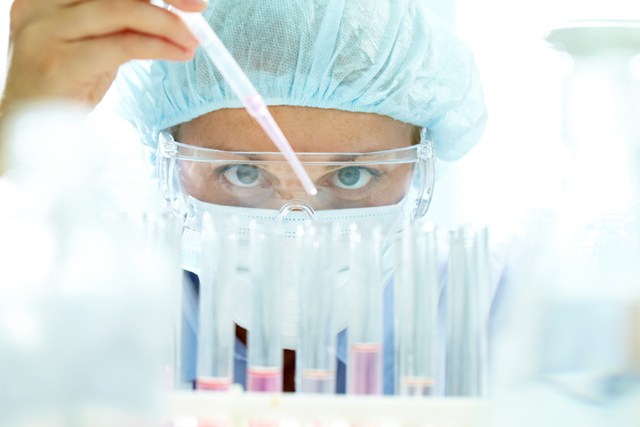The world’s top 20 pharmaceutical companies collectively spent $145 billion on their research and development (R&D) investments in 2022-23, up from $139 billion in 2021-22, according to new research from Deloitte.
The Measuring the return from pharmaceutical innovation: Unleash AI’s potential report from Deloitte, the 14th in the series, analyses the current state of R&D return on investments (ROI) for a cohort of 20 leading biopharma companies. According to the study, the rise in R&D spend is attributed to several factors, including more complex trial requirements, regulatory changes and the impact of inflation.
When it comes to the average ROI for the cohort, the analysis shows an increase to 4.1 per cent in 2023, up from the 2022 record low of 1.2 per cent. This marks a recovery from the declining ROI trend of the past decade, the only exception to this being the 2021 productivity spike (6.8 per cent) driven by rapid approvals and emergency authorisations of COVID-19 related drugs.
The report also sheds light on how the current R&D operating model within pharma continues to experience significant pressures. This is due to ongoing regulatory changes, the impending and unprecedented scale of the loss in exclusivity of high value drugs, and high inflation of supplier costs. Other challenges include the rapid pace of scientific advances, rising clinical trial complexity, and the costs of diagnostics. Yet the report illustrates that these pressures are also creating new opportunities to improve R&D productivity.
The average R&D costs to progress a drug from discovery to launch remains the same at $2.3 billion in both 2022 and 2023. Across all assets, the average forecast peak sales – the value of sales a drug is expected to generate in a year at its peak – decreases from $389 million in 2022 to $362 million in 2023. This follows the 2021 peak ($500 million) which was driven by high value COVID-19 drugs which have since been approved and left the scope of the analysis.
Karen Taylor, director and head of research at the Deloitte Centre for Health Solutions, said: “While we see an increase in the return on investment of pharmaceutical innovation in 2023, the past 10 years have demonstrated that technology-enabled transformation in R&D productivity is still needed if this cohort are to reverse the decade-long trend of declining returns while continuing to deliver innovation for patients.
“Encouragingly, AI-enabled digital transformation is increasingly seen as an important strategy for leaders in life sciences and will likely be the key to improving the longstanding productivity challenges. The biopharma industry is on the brink of large-scale disruption driven by interoperable data, advances in AI and analytics, open and secure platforms and patient-centric care. These solutions have the potential to deliver less costly and more productive approaches to drug development.”
R&D executives who were interviewed as part of the study were more concerned with changing regulations than rising R&D costs and improving cycle times. They cited the US Inflation Reduction Act as a conduit that could stifle innovation, with incentives likely to be lower and profitability reduced, resulting in biopharma companies taking fewer and smaller risks when progressing assets.
Naveed Panjwani, clinical R&D consulting lead at Deloitte, added: “Interpreting the new and evolving regulatory expectations and implementing any necessary changes in a coordinated, cost-efficient and timely manner, across a number of business functions, was highlighted by those surveyed as a significant challenge for the industry.
“As biopharma companies work to develop their pipelines and bring new therapeutics to market, they are also navigating through a complex landscape of regulations, technological advancements, and competitive pressures. These twinned with the rapid advent of AI across the industry, are demanding fast-paced and flexible commercial dynamics to enable biopharma companies to stay ahead of the curve.”
According to the Deloitte research, half of the clinical development programmes in 2023 involved complex biologics and advanced therapies, such as cell and gene, monoclonal and recombinant antibodies, protein and peptide, and plasma-derived therapies. Advanced therapies like these have created challenges for regulators and pharma companies by increasing the complexity in clinical trial, drug manufacturing and supply chain processes. The R&D executives interviewed believe artificial intelligence (AI) can accelerate the creation of these treatments but efforts to improve R&D efficiency through digitalisation and automation are still in its infancy.
Colin Terry, head of life sciences and healthcare consulting at Deloitte, said: “There is a role for AI in improving critical path items. This includes clinical trial recruitment and retention, and bettering the patient experience, while increasing speed to market of drugs and lowering production costs.
“But despite the heavy investment into AI applications, pharma companies have not yet realised its potential to become a game-changer. This can be attributed to most pharma companies lacking a coherent and clear value-based strategy for investment in AI and digitalisation and instead focusing on short-term operational goals. As the potential of AI is realised, the differentiator is likely to be the quality and comprehensiveness of proprietary data that these algorithms are initially trained on and take in thereafter.”


